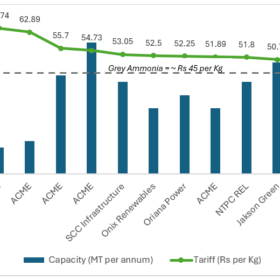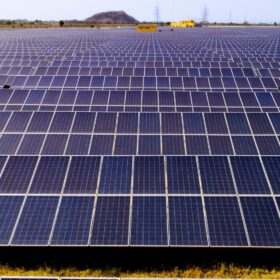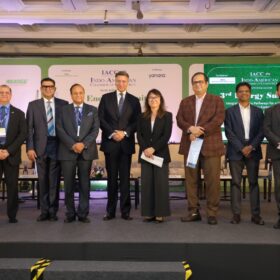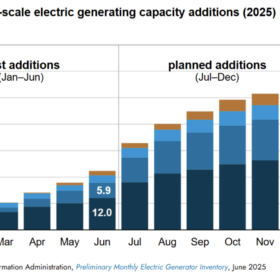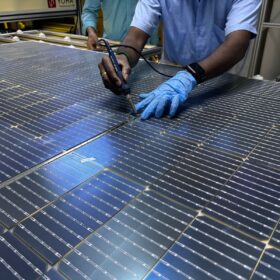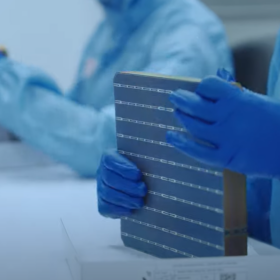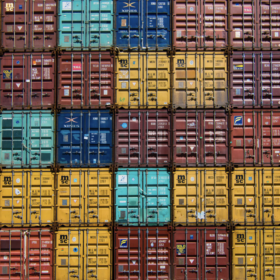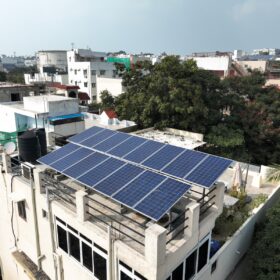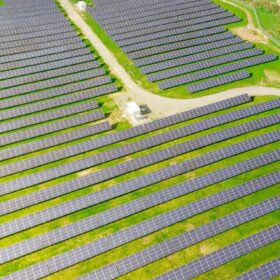Green ammonia is only 10% costlier than grey in the latest SIGHT Mode 2A auctions
The lowest green ammonia price discovered so far in the SIGHT Mode 2A auctions is just 10.1% higher than the current grey ammonia prices in India (US$515 per MT). Notably, the low cost of Rs 49.75 per kg in the Mode 2A auctions is almost half of a similar green ammonia auction conducted by H2Global in 2024, suggesting an imminent price parity between grey and green ammonia.
India installed 18 GW solar in first half of 2025, says Mercom report
India added 18 GW of new solar power capacity in the first half of 2025, with over 11 GW installed in the second quarter alone.
India finalizing CCUS Mission roadmap, outlay
The Union Government is finalizing the roadmap and financial outlay for the much-anticipated Carbon Capture, Utilisation and Storage (CCUS) Mission, said Rajnath Ram, Adviser for Energy, Natural Resources & Environment at government policy thinktank NITI Aayog.
EIA projects record 64 GW US power capacity buildout in 2025
The US Energy Information Administration (EIA) says developers plan to add 21 GW of solar in the second half of 2025 alone.
Shrinking export opportunities raise solar module oversupply concerns in India: SBICAPS
India’s solar module manufacturing capacity has reached around 100 GW, enough to meet domestic demand. However, with total module capacity rising to 190 GW by March 2027 and export opportunities narrowing, the market faces oversupply crisis, states a new report by SBICAPS.
Domestic solar cell mandate delayed: Boost for renewable energy growth, test for regulators
The revised timeline for the implementation of the Approved List of Models and Manufacturers for Solar Cells (ALMM-II) offers temporary relief to solar developers amid persistent domestic cell supply constraints. However, it also introduces fresh regulatory challenges, particularly around tariff renegotiations for recently awarded projects, according to analysts at CareEdge Ratings.
How the India-UK FTA can turbocharge clean energy cooperation and investment between the two nations
Trade is only half the story, the bigger opportunity lies in green finance. Indian renewable energy projects require an estimated $250 billion in capital by 2030. The UK, home to one of the world’s most mature green finance ecosystems, including institutions like the Green Investment Bank and large ESG-focused funds, is ideally positioned to bridge this gap.
US opens next round of solar import probes targeting India, Indonesia, Laos
The US Department of Commerce has initiated full investigations into anti-dumping and anti-subsidy cases against solar imports from India, Indonesia, and Laos filed in July. These investigations, conducted alongside the US International Trade Commission (ITC), are expected to continue into next spring.
Industry reacts to cybersecurity rules for rooftop solar monitoring systems
The solar industry broadly supports a more secure, standardized framework for remote monitoring systems (RMS) used in grid-connected rooftop solar installations but voices concerns over implementation hurdles, additional costs, and technical feasibility—especially for smaller players and regions with limited connectivity.
Global electricity demand to rise in 2026 as renewables lead, says IEA
Global electricity demand is set to rise more than 3% per year through 2026, driven by growth in Asia and greater use across industry, data centers, and transport, with renewables, gas, and nuclear meeting most of the increase, says the International Energy Agency (IEA).
